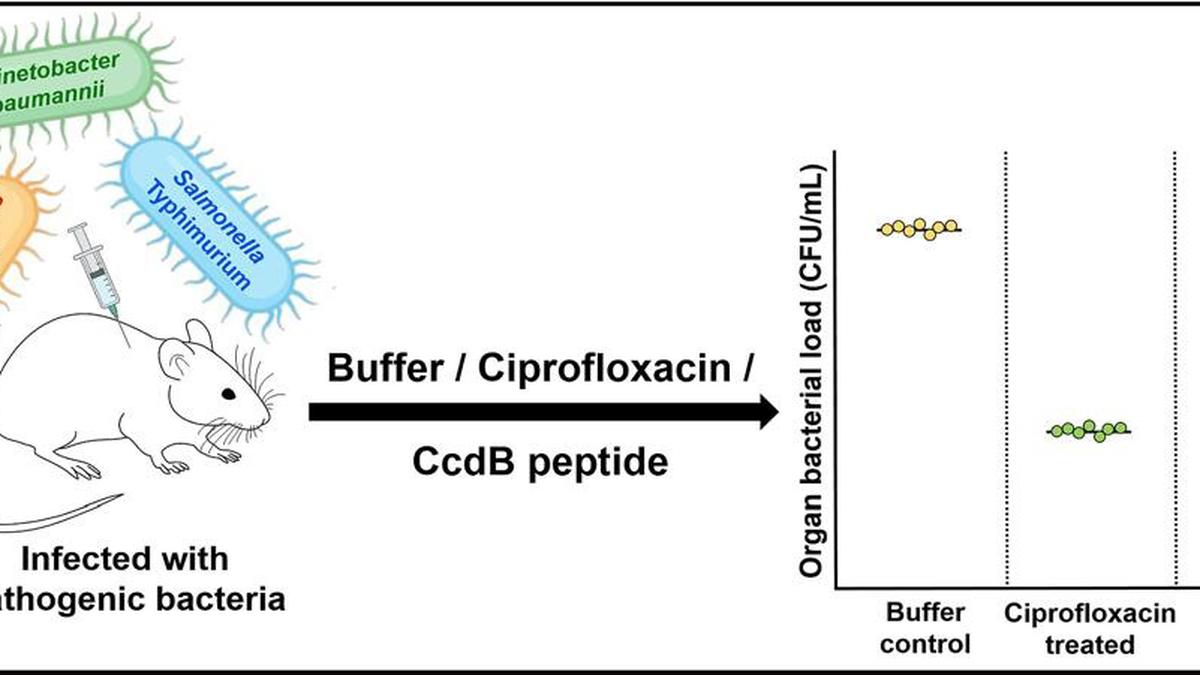
IISc researchers design synthetic peptide to kill antibiotic-resistant bacteria
The Hindu
IISc researchers design peptide to poison key enzyme in disease-causing bacteria. Mimics natural toxin to inhibit topoisomerases, which unspool/re-coil bacterial DNA. Peptide tested on cell culture/animal models, found to reduce infection & safe with no toxic reactions. Combination therapy with existing antibiotics possible.
Researchers at the Indian Institute of Science (IISc) have designed a short peptide capable of poisoning a key enzyme in disease-causing bacteria, including some of the most deadly and antibiotic-resistant species.
According to the institute, made from a short stretch of about 24 amino acids, the peptide mimics the action of a natural toxin which inhibits a class of enzymes called topoisomerases.
These enzymes play a crucial role in unspooling and re-coiling bacterial DNA during replication and protein synthesis. They are an attractive target for antibiotics because the ones in bacteria are very different from those in humans.
Among the most widely used antibiotics are fluoroquinolones such as ciprofloxacin, which target these topoisomerases. However, overuse of these antibiotics around the world has led to the alarming rise of antibiotic-resistant bacteria, prompting scientists to pursue alternative strategies and molecules.
“Topoisomerases form a covalent adduct – an intermediate complex – with the bacterial DNA, to coil or uncoil it. The peptide developed by the IISc team binds to this adduct and traps it in place, kicking off a cascade of events that lead to cell death,” said Raghavan Varadarajan, professor at the Molecular Biophysics Unit (MBU), and one of the corresponding authors of the study published in EMBO Reports.
The team tested the new peptide’s effect on the growth of several disease-causing bacterial species, including E. coli, Salmonella Typhimurium, Staphylococcus aureus and a multidrug resistant strain of Acinetobacter baumanii – both in cell culture as well as animal models.
In animal models, the peptide was found to drastically reduce infection. “In most of the cases, we saw that the decline in the bacterial count in major organs following peptide treatment was higher than in the ciprofloxacin-treated group. That was pretty encouraging to us,” says Bhowmick.

The event will run daily from 10 a.m. to 8.30 p.m., offering a variety of activities. Visitors can enjoy dance and music performances, hands-on art experiences, film screenings, and exhibitions from 10.30 a.m. to 6.30 p.m. These will feature folk cuisines, leather puppets, philately, textiles, and handicrafts.

















